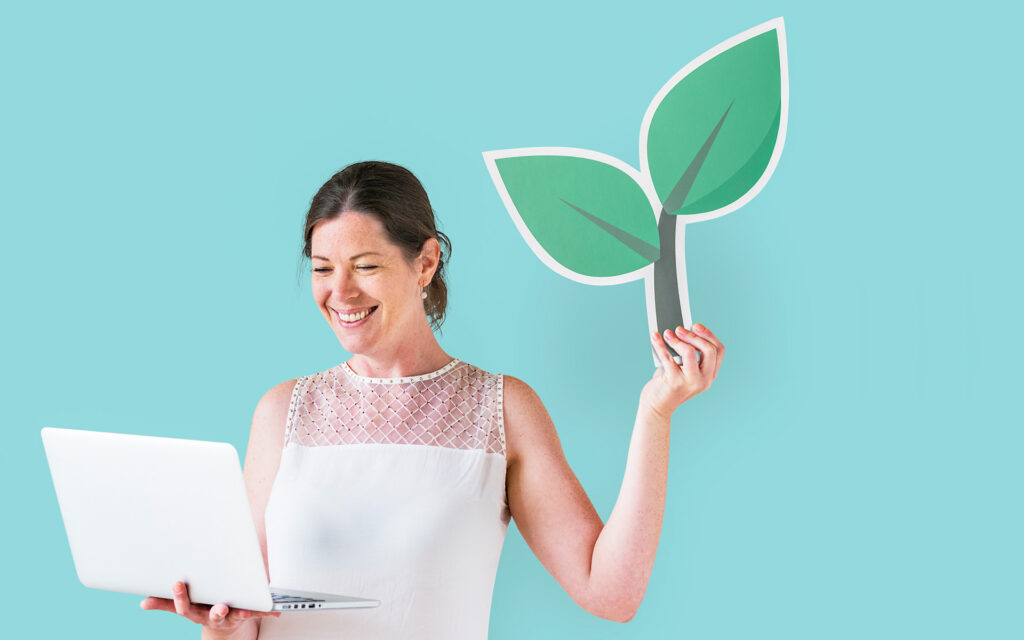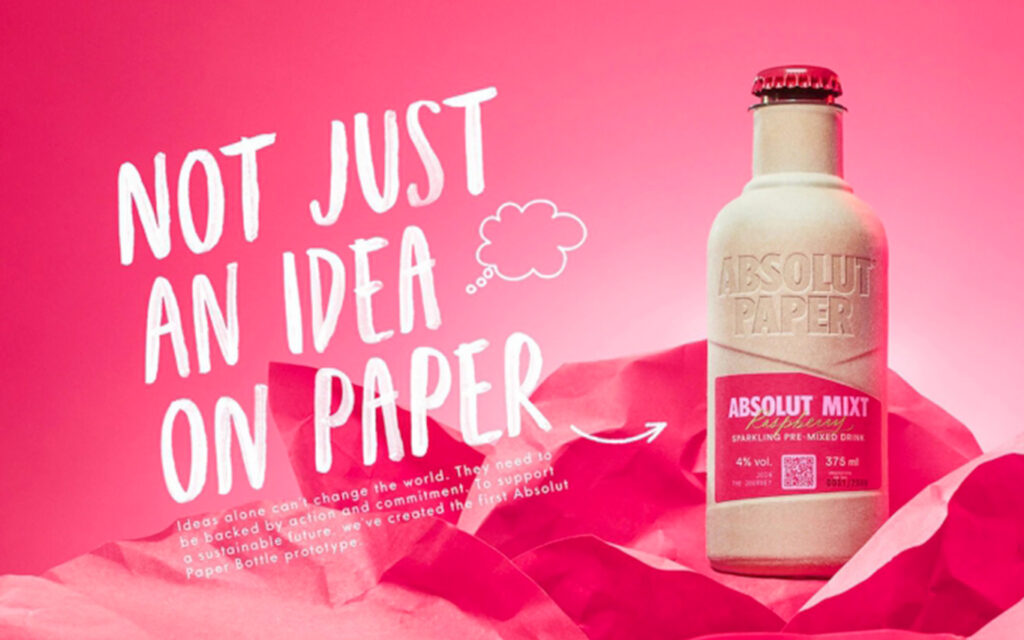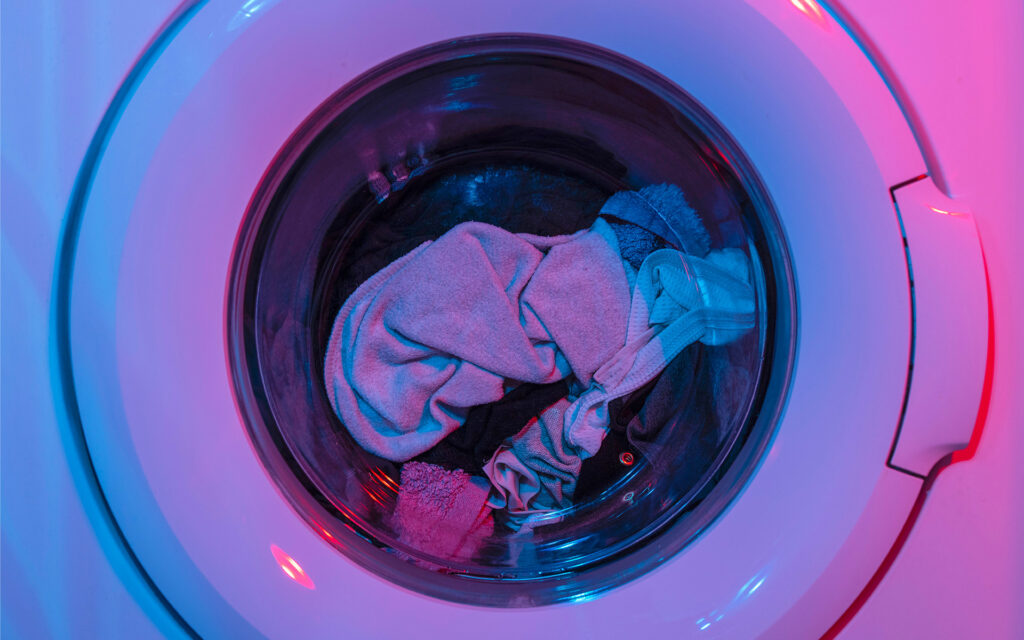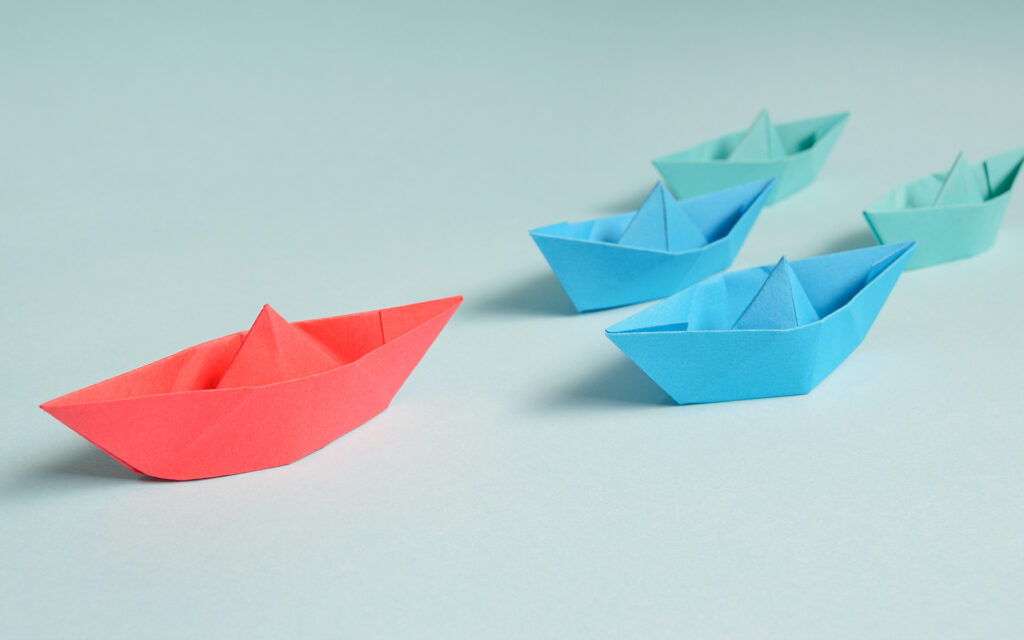When it comes to sustainable news, we often hear about “greenwashing“. It is a term that refers to misleading business or marketing practices by which a company seeks to present itself as ecological or sustainability-oriented, even when its actions and practices are not actually in line with those goals. In other words, the use of advertising strategies gives the impression that a company is taking significant steps to protect the environment, while not necessarily making significant changes in its business behavior.

This can be done through a number of means, such as the use of slogans and images that recall nature, the adoption of green colors or ecological symbols in marketing materials, and the affirmation of environmentally friendly practices. They don’t provide concrete evidence of these claims, but simply announce that it is a sustainable news.
In this perspective we can take as an example the company Absolut.

The company Absolut recently announced the launch of its “paper bottle”. A seemingly sustainable bottle made of paper. However, a closer analysis reveals that this bottle is not as eco-friendly as it would like to look. In fact, it is lined with plastic inside. Surely, they tried to create a product greener than the existing one. In fact, this bottle does not require post-production assembly that would require the use and expenditure of additional energy.
But we are still a long way away from being able to say that we are facing an ecological and completely recyclable product.
Positive innovations
Among the sustainable news with a positive impact, there is the system called “Air Fiber Washer”. It was developed by Inditex to face the problem of microfibers released during the textile production process. Microfibers are small particles of material that can separate from fabrics during washing and disperse into the environment, contributing to contamination of the marine and terrestrial ecosystem.
The Air Fiber Washer is designed to extract up to 60% of microfibers during the production process. In this way it reduces those that will be released in subsequent washes. This system makes use of dynamic airflow along with microfiltration to capture microfibers released by the fibers. This approach aims to significantly reduce the extent of harmful substances entering our environment, thus contributing to the reduction of the impact of the textile sector on the earth.

A technology like the latter is an important step towards sustainability in the fashion industry. Fashion companies have become increasingly aware of the importance of addressing environmental issues related to clothing production and consumption. Reducing the release of microfibers during the production process is a concrete way to help mitigate environmental pollution.
It is encouraging to see giants like Inditex investing in research and development to introduce new sustainable technologies into their production process. These initiatives not only reduce the negative impact of industry on nature. They also demonstrate a commitment to environmental responsibility and the creation of more sustainable business models.
In a completely different sector, we are witnessing giant steps in the right direction. Mitsubishi Corporation has created a cargo ship driven by the force of the wind. It seems almost impossible to think that a marine giant that can carry up to 81,000 tons, can be moved by the force of the wind. Its 38 meters high sails exploit the force of the wind to activate its movement. Their use greatly reduces the use of fuels. If we consider that the ship industry is still responsible for transporting 80% of all goods moving between countries, we can see the huge scale of this innovation.






